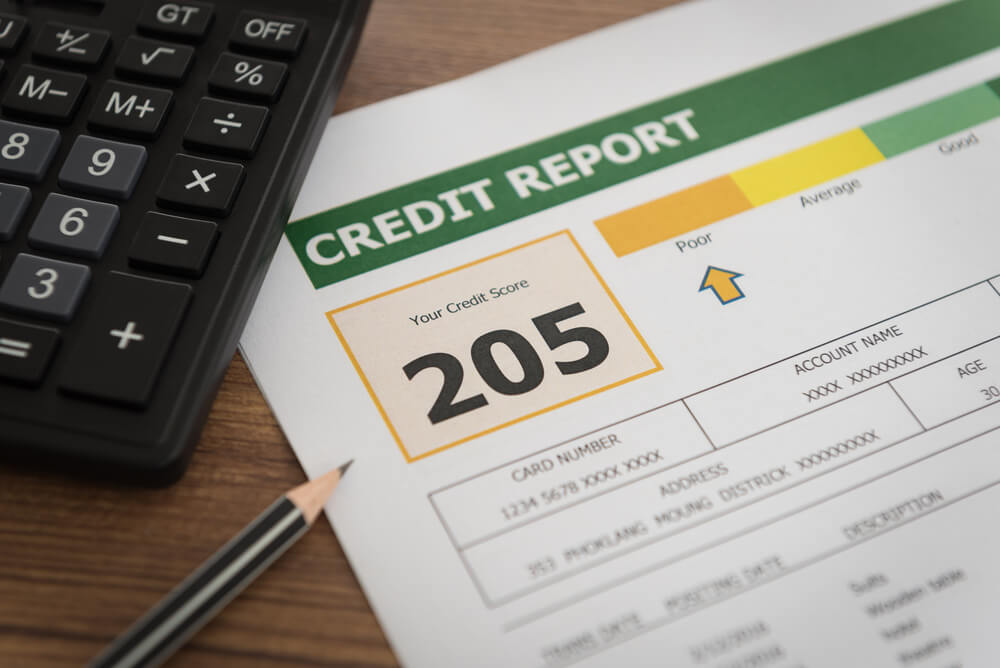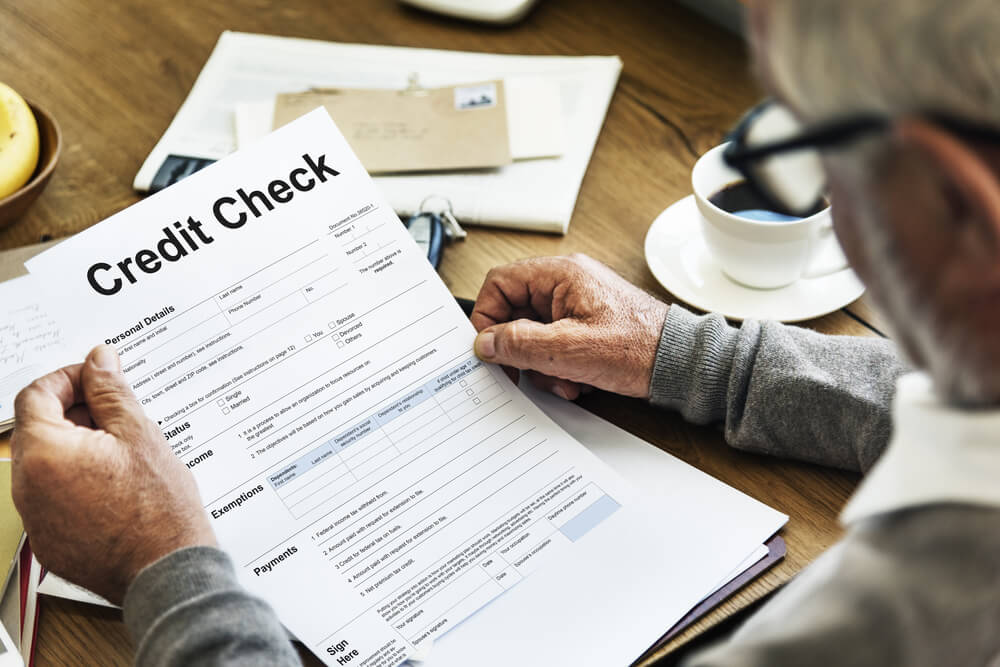How to Improve your credit score

What is a credit score?
Before we get to how to improve your credit score, let’s start with a few definitions.
Credit is a universal term and it’s used to describe money that you’ve borrowed and agreed to pay back. Credit cards, personal loans, car finance, mortgages, and mobile phone contracts are all forms of credit.
But credit isn’t guaranteed. Lenders will usually weigh up how risky it might be to give you credit before granting you a loan. And that’s where your credit score really matters.
Your credit score – also known as a credit rating – is one of the tools that lenders use to find out what kind of borrower you are. It’s a three-digit number that represents your borrowing history and indicates how likely it is that you’ll be able to keep up with your loan repayments.
The good news is that, whether your current score is bad, fair, good, or excellent, there are several ways to improve credit scores.

Who calculates my credit score?
Your credit score is personalised and calculated by a credit reference agency.
Each credit reference agency takes information from your credit report and feeds it into a mathematical model that then comes up with a number to represent your credit history.
There are three main credit reference agencies in the UK: Experian, Equifax, and TransUnion. Each one uses different information and a different method to calculate your score. That’s why there’s no one score that’s universally seen as good.
Credit scores aren’t fixed either. They can even change depending on the day you check and the type of credit you’re applying for. And you can’t be sure which reference agency your prospective agency will use. It’s important to check your score with all three agencies regularly.
How can I check my credit score?
So, you’ve decided you want to make credit score improvements, but where should you start?
Checking your report regularly is a great habit to implement when you want to build credit. There are a few different ways that you can check your credit score online for free.
Credit Karma (using TransUnion data), ClearScore (using Equifax), and Experian all offer free credit checks with no strings attached. You can also sign up for alerts that’ll email you when your score changes or something new has been added to your credit report.
Looking for something a little more substantial?
Experian and Equifax both offer in-depth credit reports for a fee. Free trials are available, but you’ll probably be asked to enter your credit or debit card details so be aware that you will be charged if you don’t’ cancel before the free trial period ends. We recommend setting a calendar alert on your phone or work planner so that you don’t get caught out.
What can affect my score?
Your credit score is as individual as you are and can be influenced by several different things.
It’s not an exact science, and each credit reference agency looks at different factors, but some of the information that can affect your score includes:
The different types of credit you have
Your repayment history
The number of times you’ve applied for credit (most hard searches stay on your report for at least 12 months)
The age of your credit
To help them decide what type of borrower you’ll be, lenders will probably also want to know:
What you do for a living
How much you earn
How old you are
If you own your home
Your address history
How does my credit score affect the APR I’m offered?
When applying for car finance, the APR you’re offered depends on a few factors including your credit score. Typically, the higher your score, the lower the APR you’ll be offered. This is because you’ll be seen as a low-risk borrower by the lender.
But your credit score isn’t the only thing that lenders look at. Your individual circumstances, the car you want to buy, and the type of finance you’ve applied for can all affect the rate available to you.

How do I improve my credit score?
Here are our top tips for boosting your credit score:
Check for mistakes on your report
Checking your credit report every month is a great financial habit to have. Set aside some time to go through it carefully as even small mistakes could make a big difference to your overall score. Look out for any missed payments that you don’t remember making, incorrect address details, or applications for credit you don’t recognise that might indicate you’ve been a victim of identity theft. If you do find a mistake, get in touch with the relevant credit reference agency as soon as possible.
Pay bills on time
One of the best ways to maintain and improve your credit score is to keep on top of your bills. It’s not always easy, but unfortunately, missing or delaying just one payment can be a red flag to prospective lenders. If you find it tough to keep track of the different payments due or find bills stack up at the end of the month, you could try setting up direct debits or changing your payment dates so that everything goes out on the same day, like the day after payday.
Don’t use all available credit
Maxing out your credit cards every month won’t do much for your credit score. Of course, sometimes it’s unavoidable – we all have those months when everything needs replacing at once – but if you can use a smaller percentage of the total available credit then it can help to prove that you’re a responsible borrower. That’s also why closing credit cards that you don’t use much (and reducing the amount of credit available to you) won’t necessarily boost your score.
Limit your credit applications
Every time you make a new application for credit, it will leave a mark – known as a hard search – on your credit file. A lot of hard searches in a short time can impact your credit score.
If you can, try to leave a gap between applications or use a broker that only carries out a soft search (which won’t affect your score) and allows you to look for a loan from multiple lenders at once. It’s especially important to be cautious when making new applications if you’ve been rejected by another lender.
Register on the electoral roll
Are you registered to vote? If you are then congratulations – you’re already on the electoral roll!
If not, then it’s one of the easiest steps you can take to boost your credit score. Registering on the electoral roll is free and the takes just minutes online. Be sure to register at your new address every time you move house too.
Check your financial links
Being married or in a long-term relationship with someone doesn’t mean your finances are automatically linked. It’s only if you’ve taken out credit together – a joint credit card or mortgage, for example - that their financial history might impact yours. You should also keep this in mind when considering making a joint loan application or agreeing to act as a guarantor.
What if there’s a mistake on my credit file?
Sometimes things can go wrong, and mistakes are made on your credit report. If you find one, don’t panic! You have the right to challenge any incorrect information with the relevant credit reference agency.
The agency then has 28 days to either remove the mistake or explain why they believe it’s correct.
Can I get car finance if I’ve got no credit history?
Having no credit history might sound like a good thing – you’ve never had to borrow money, after all – but it can count against you when applying for car finance as lenders can’t be sure what kind of borrower you might be. They’re flying blind with no data to back up how good you are at paying your debts and keeping up with a repayment schedule.
You should never take on more debt than you need or can afford to repay but, if you have no credit history, taking steps to demonstrate that you're a responsible borrower could help you start to build a healthy credit profile.

Can I get car finance if I’ve missed payments in the past?
While having missed payments in the past can make it more difficult to get a car finance loan, it’s not impossible! At Car Finance 247, we work with a panel of lenders, which means we can look to find finance for people with a variety of different credit scores, including those with bad credit. We might even be able to help if you’ve been refused car finance elsewhere.
We understand that credit scores come in all different shapes and sizes so if yours could do with some work or if you’ve had a CCJ or IVA in the past, we’ll still work to find you the best deal from our panel of lenders.
Be cautious with any lender that claims to offer no credit check car finance or guaranteed car finance. Credit checks are an important step in the finance process and offer reassurance for both the lender and the borrower. Guaranteed car finance doesn’t exist; each lender has set criteria that must be met for them to approve a loan. These rules are in place to make sure that your car loan is right for you and your circumstances and won’t make your financial situation worse.
Will applying with Car Finance 247 affect my credit score?
When you apply for finance with us at Car Finance 247, we'll run a soft credit search to find out if one of the lenders on our panel can approve you in principle. While this might be noted on your credit report, it won’t affect your score. We’ll only carry out a hard search if you choose to proceed. One advantage of using a car finance broker is that you only need to make one application to get access to a panel of lenders, so you don’t have to risk multiple searches on your credit file.
How will car finance impact my credit?
Car finance can negatively or positively affect your credit score depending on the type of borrower you are. Initially, you might see a slight dip in your score as you’ll have taken on a large new debt, but this should recover once you start making repayments. And if you keep up with all your repayments, you could end up improving your score over time.
A car loan could also boost your score by diversifying your credit mix. UK lenders like to see a mix of different types of credit on your report as it reassures them that you’re an experienced borrower.
However, if you struggle to keep up with your repayments, miss payments, or regularly make them late then that could harm your score. This can signal to lenders that you might not be a responsible borrower and it’s one of the reasons why considering how much you can afford to borrow is such an important part of the car finance process. If you need to reduce your repayments, you could consider applying for a refinance loan.
Which credit company does Car Finance 247 use?
Each lender that we work with uses a different credit reference agency – some even use more than one. It’s our job to find the best deal for you from our panel of lenders.